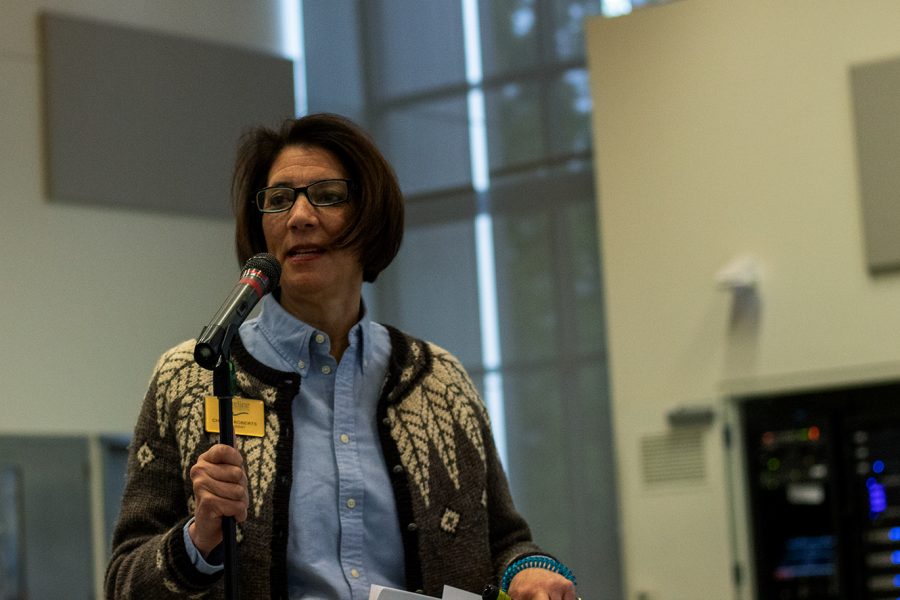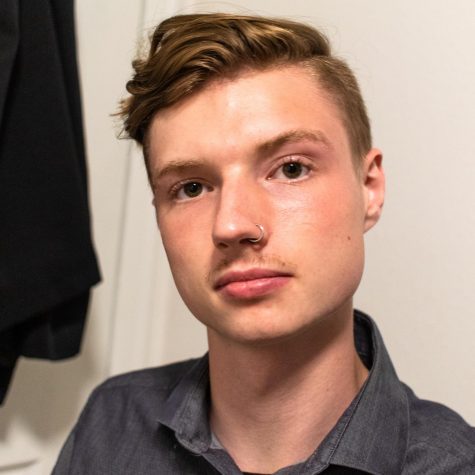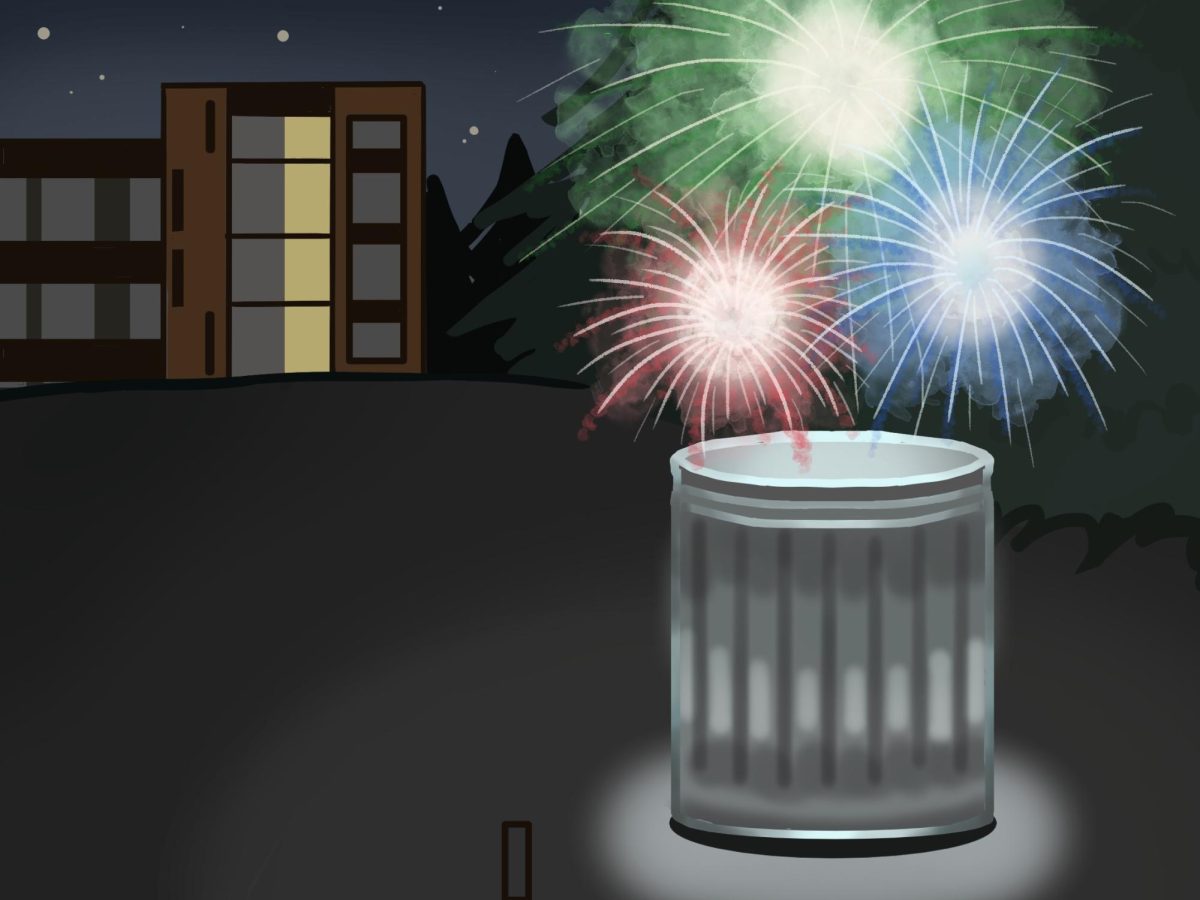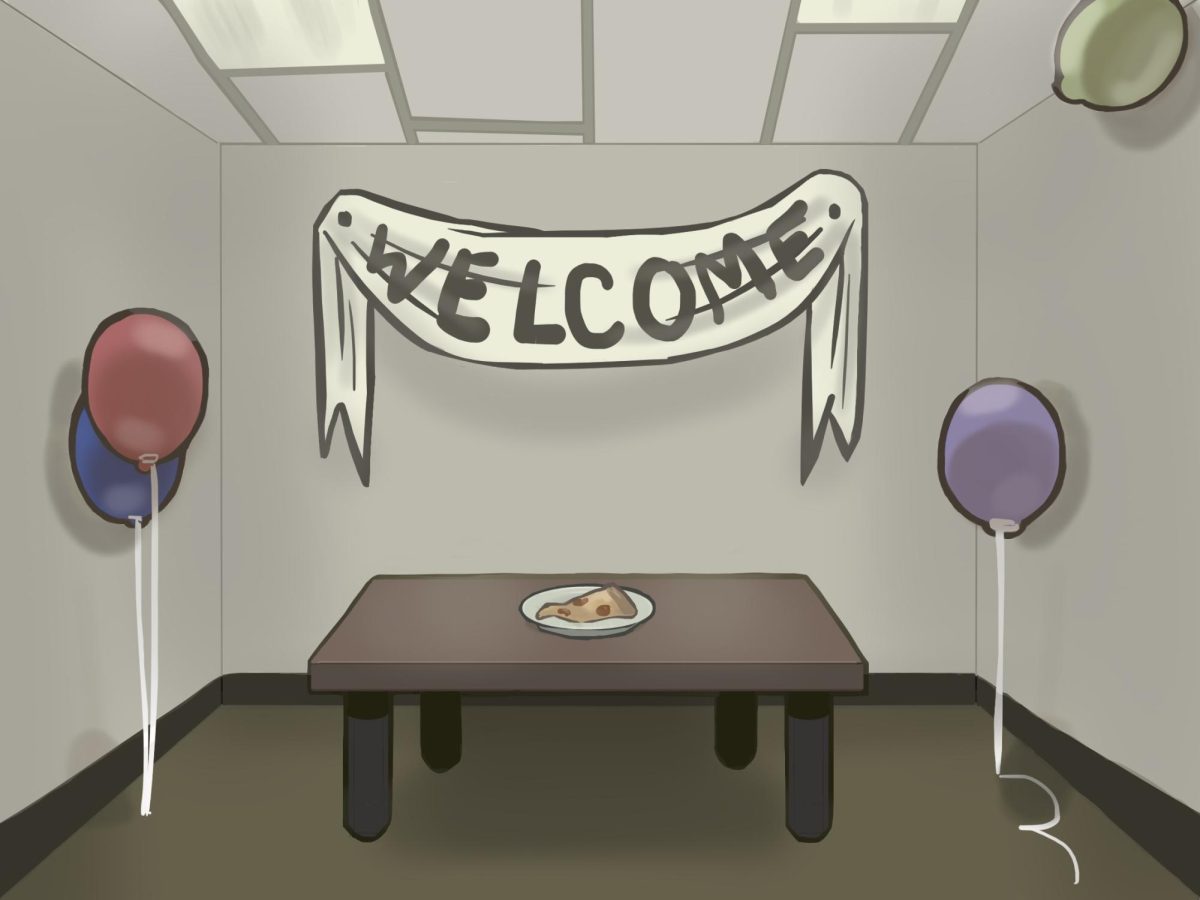Cauterizing SCC’s Budget
SCC President Cheryl Roberts speaks at a Dec. 5 budget meeting. She took questions from staff on upcoming layoffs as well as the futures of the dental hygiene program and food services. (Photo: Joshua Groom / The Ebbtide)
December 6, 2019
Layoffs and class cancellations loom over SCC as the college plans to trim $1.9 million from the budget. Those cuts will be made primarily through workforce reductions.
SCC’s current shortfall is a result of decreasing enrollment and a change in Washington state’s allocation model, according to SCC President Cheryl Roberts.
“It’s a tender time,” she said. “People like it here … (faculty and staff) have invested a lot of energy here.”
Roberts would not speculate on how many jobs will be eliminated, saying it was too early in the program review process to make that determination. The administration’s review of each department’s self-study began Dec. 4.
Each department is currently reviewing their finances and reporting where cuts could be made.
The college will make no changes to the classes offered until next year, according to Roberts. She explained that there is a difference between canceling a class that hasn’t been filled — which gets done regularly — and offering fewer sections of that course.
Roberts emphasized that professional technical programs would not be disrupted, as they follow a prescribed order.
On The Chopping Block
While no classes have been cut thus far, SCC has grown more conservative in efforts towards advancement. SCC postponed efforts to offer a Bachelor’s of Applied Science in Dental Hygiene due to the budget process, according to previous reporting from the Ebbtide.
Representatives from the Dental Hygiene program voiced their concerns about SCC’s plans to demolish the 2500 Building and the survival of their program on the Dec. 4 Board of Trustees (BOT) meeting.
“One moment, we’re sharing to our current students that we’re waiting to move to a new state-of-the-art clinic,” said Maryrose Bellert, the Dental Hygiene program director. “The next moment, we’re informed that the college had decided to exclude us from the new building, and even considered not continuing the program.”
Many locations were considered to house the Dental Hygiene program, Roberts said. SCC has ruled out the possibility of the Dental Hygiene program moving to the PUB and other locations off campus, like the International Community Health Services building at Aurora Avenue and 167th Street.
However, Roberts said that they are currently “in conversations” with another organization to potentially house the Dental Hygiene program and that more information would be available at the end of December. That organization was not named.
On the possibility of cutting the Dental Hygiene program, Roberts said all departments were being evaluated.
Faculty and Staff Concerns
The Shoreline Community College Federation of Teachers (SCCFT) had previously voiced concerns to the BOT about the growing size of admin/exempt positions and the decrease of faculty numbers.
Roberts said at the Dec. 5 budget meeting that cuts will be “equitably done,” with consideration for “services of students.” The college will know more in January.
SCCFT President Eric Hamako and Washington Federation of State Workers Chief Shop Steward for SCC Paul Fernandez presented more recommendations to the board on the Dec. 4 BOT meeting. Among criticisms, Hamako counseled the BOT to hold off on making reductions in workforce and the construction of the new science building.
Hamako also lamented the eroded confidence of the campus community towards the administration, and said that until confidence is restored and “an authentic participatory process” is established, plans to gut the budget and build the new facilities should not continue.
Roberts countered Hamako’s recommendation to hold off on the science building, stating that funding from the state will expire in 2022 and that unless SCC uses the funds for the building in that timeframe, the money will be lost.
She also clarified that while the number of admin/exempt positions did grow since 2014, a lot of those positions are being reimbursed by outside grants from federal and state sources. Athletic coaches from all seven teams on campus also moved from faculty to admin/exempt positions in 2017.
SCC employed 61 administrators in 2014, nine of which were funded by outside sources, according to Roberts. SCC now employs a total of 91 administrators, 19 of which are funded by outside sources. A number of the rest are also the athletic coaches.
Fernandez also shared a statement on behalf of the classified staff: “While administrators are more than adequately compensated when they gain additional duties, the classified staff, who are already overworked and provide a direct service to our students, continue to be assigned additional students with no additional pay,” he said, adding that “the majority of us” do not trust SCC’s leadership, or the president’s ability to “face the problems.”
Key Terms
-
Allocation Model: Criteria that the state legislation uses to decide how much money to give to community colleges, like enrollment quotas.
-
Program Review: Review process that every constituency on campus (classified staff, faculty, administrative exempt staff) has undergone to review their finances, number of employees, etc.
-
Self Study: Departments on campus compiled data and narrative information for administration to utilize in the program review process.
-
Admin/exempt: an employment category at SCC that does not have union representation and is on year-to-year contracts. Administration and deans are in this category.
-
Accreditation Standards: Criteria SCC must meet in order to be allowed to offer degrees.
CORRECTION: An earlier version of this page listed a Board of Trustees meeting as taking place Nov. 4. It was on Dec. 4.







